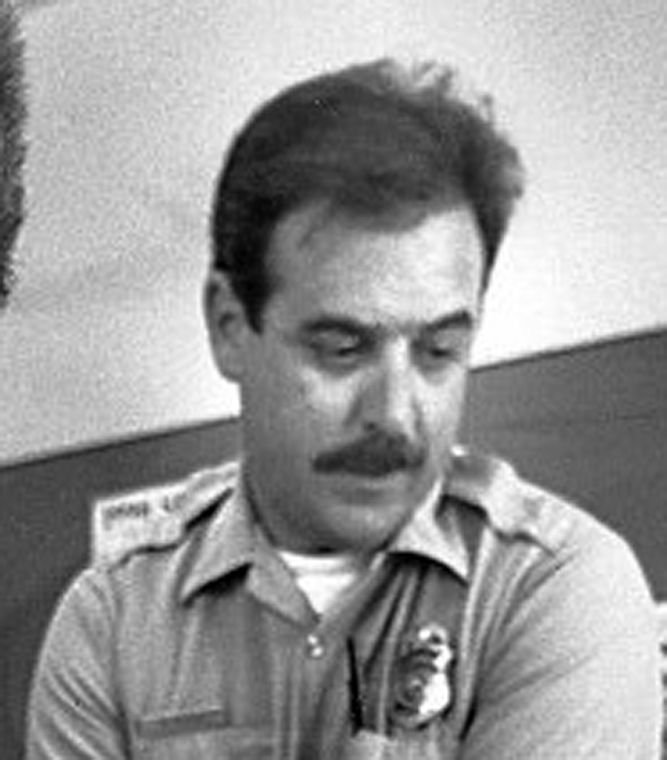The City of Gilroy is “vindicated” after a U.S. Federal Court Judge in San Jose tossed out a controversial year-old lawsuit filed by former Fire Division Chief Edward Bozzo and current Fire Division Chief Phillip King, who claimed they were cheated out of a combined $30,000 in overtime pay.
Judge Edward Davila of the Northern District of California granted the City’s motion for a summary judgment last week. Unless the decision is appealed and overturned, the case – which has already cost the City thousands of dollars in legal fees – will not go to trial and the file is now closed.
“It’s the right result,” City Councilman Perry Woodward said. “These two administrative employees were extremely well compensated and were trying to achieve a windfall by getting overtime when it was not part of their contract. The court saw through what they were trying to do and saw that they should get nothing.”
Bozzo, who had an annual salary of $167,386 and retired in December of 2011, will collect a monthly pension of $10,800 for the rest of his life. King’s current annual salary is $180,232.
Bozzo and King assert in their complaint the City broke federal labor laws by classifying the pair as employees exempt from overtime as part of City-mandated furloughs during the belt-tightening grip the Great Recession had on Gilroy in 2009.
“The City had to lay people off and cut back – it was terrible,” Mayor Don Gage said.
According to their original complaint, Bozzo and King were furloughed for four hours per week from 2009 to 2011, and should have had a 36-hour work week – at least in theory. But the pair argued they still worked up to 56 hours per week, and the City should reimburse them for those overtime hours.
Carol Koenig, a San Jose-based labor law attorney representing Bozzo and King, previously estimated her clients were cheated out of being paid for more than 200 hours of work each, for a combined monetary loss of $30,000, which works out to $150 per hour.
However, since Bozzo and King were making more than six times the federal salary requirement ($1,971 per month) for salaried employees during that period, the City argued they were not entitled to overtime benefits.
Multiple calls and emails seeking comment from Koenig, Bozzo and King have not been returned.
“Although the lawsuit was filed prior to my arrival in Gilroy, it was a detraction that drew our focus away from our mission,” Gilroy Fire Chief Alan Anderson surmised. “For two highly compensated exempt management employees to attempt to receive compensation for a couple of hours of work each week was a misguided attempt to extract a few extra dollars from the City. It was unwarranted and the judge affirmed that.”
Anderson added that crews who respond to daily emergencies on Gilroy fire engines are represented by the International Association of Firefighters Local 2805 – and they had nothing to do with what he said was an “unwarranted” and “frivolous lawsuit.” He made the point that the Gilroy Fire Department can now re-focus on its mission of meeting the community’s needs following the decision.
Judge Davila concluded, overall, there was no genuine issue or debate that would warrant taking the case to trial.
“Summary judgment must be granted where a party ‘fails to make a showing sufficient to establish the existence of an element essential to the party’s case, on which that party will bear the burden of proof at trial,’” Davila wrote in the judgment.
Gilroy Mayor Don Gage said he agrees with the decision.
“I just go by what the judge said, that they were exempt employees and they don’t get paid overtime,” he concluded. “I was a manager at IBM and I worked overtime for many years, but my salary compensated me for that.”
If the City had lost the case, Gilroy would have been on the hook for more than $160,000 in attorney fees.
But it doesn’t work the other way around.
“Unfortunately, the way federal law is established is that we are not allowed to recover any attorney’s fees, despite the fact we had a judgment in our favor,” Woodward said. “That’s the way the law works.”
LeeAnn McPhillips, Gilroy’s human resource director, estimated that the City’s legal fees had risen to more than $88,509.
City: Lawsuit ‘sought to undo’
bargaining concessions
Bozzo and King were part of the Gilroy Management Association, the City’s bargaining unit for its management employees, which along with other groups representing hundreds of employees met with the City in 2009 to address Gilroy’s “fiscal crisis,” according to court documents.
The management association agreed on a 9.23 percent pay cut in exchange for “furlough time” – a bank of paid leave that would be forfeited if not used by June 30, 2011.
Between the furlough period of July 1, 2009 and June 30, 2011, Bozzo and King received monthly pay in excess of $11,345 and even occasionally received additional pay above that amount, according to the District Court decision.
But that wasn’t sufficient, according to Koenig.
The crux of her argument was that both Bozzo and King performed additional work during the furlough period – work that went uncompensated beyond their salaries.
Gilroy Public Information Officer Joe Kline said Bozzo was even on the negotiating team that reached an agreement with the City, then-vice president of the GMA, on pay and benefit concessions – concessions he later challenged in the lawsuit.
“Bozzo and King’s lawsuit effectively sought to undo the concessions that applied to them,” Kline said.
City Administrator Tom Haglund called the ruling “a victory for the City and all of its other employees who met and conferred in good faith and negotiated agreements to help the City survive the nation’s catastrophic economic collapse that threatened the city’s financial viability.”
The City is satisfied with its current administrative policies for fire division chiefs following the court’s decision, according to Haglund.
“We haven’t revised any policies because we don’t believe any specific policy needs to be revised,” he said. “Clearly the court issued a strong opinion upholding the City’s policies at the time [of the furlough], indicating both King and Bozzo were wrong in pursuing that money.”
Woodward said the summary judgment “fully vindicated” the City.
“It’s unfortunate it had to go this route, but these are two greedy guys,” he said. “Justice doesn’t always prevail, but in this instance, it did.”















